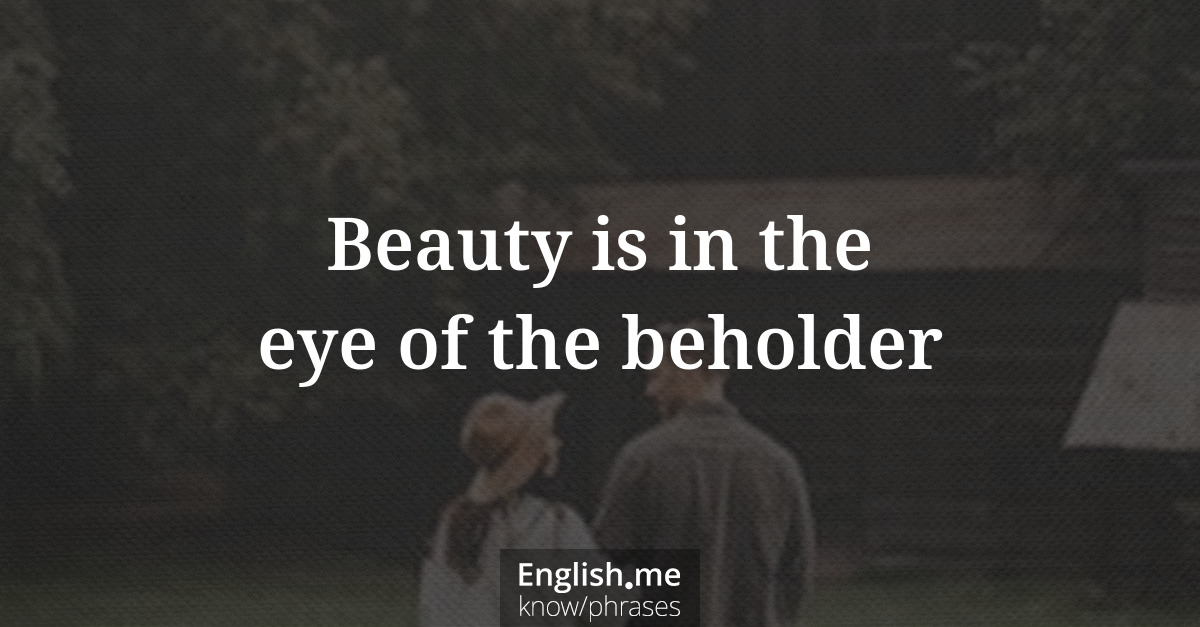Explaining "Beauty is in the eye of the beholder"
Reviewed and edited by  Anwar Kareem 12/10/2024, 14:37
Anwar Kareem 12/10/2024, 14:37
English.me team member
 What does it mean?
What does it mean?

The phrase means that the perception of beauty is subjective and varies from person to person.
 Tone
Tone
Subjective Origin
Origin
The phrase is often credited to the 3rd century Greek text "The Eye of the Beholder" by Plato, though it's more commonly associated with its 19th-century English usage, such as in Margaret Wolfe Hungerford's book "Molly Bawn" published in 1878.
 Examples of usage
Examples of usage
- When discussing the abstract painting, Lisa reminded her friends that beauty is in the eye of the beholder.
- He might not be conventionally attractive, but remember, beauty is in the eye of the beholder.
- The garden's design wasn't to everyone's taste, but the artist believed that beauty is in the eye of the beholder.

 English
English español
español française
française italiano
italiano deutsche
deutsche 日本語
日本語 polski
polski česky
česky svenska
svenska Türkçe
Türkçe Nederlands
Nederlands